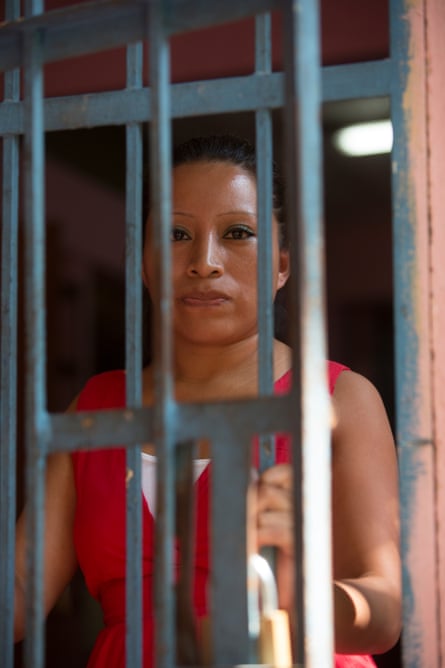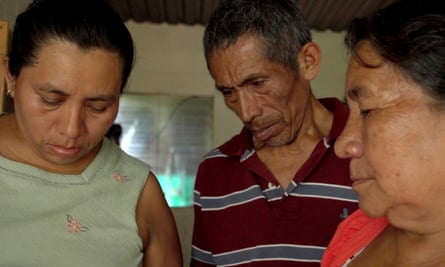Teodora del Carmen Vásquez was nine months pregnant when she felt a piercing pain in her abdomen. She called emergency services, but started bleeding and lost consciousness before help arrived.
As she came round, police officers surrounded her and accused her of murdering her baby by inducing an abortion. Vásquez, who was 24 at the time, was handcuffed and detained. She was hastily sentenced to 30 years in prison for aggravated murder.
Vásquez, now 32, is one of at least 19 women in El Salvador serving long prison sentences after suffering obstetric complications during pregnancy. Abortion has been banned in all circumstances since 1998. El Salvador is one of five countries where there are no exceptions, even if the woman is raped, her health or life is at risk, or if the foetus is seriously deformed.
Miscarriages of justice have become shockingly commonplace, in a pious, macho culture which endorses the aggressive persecution of women deemed guilty of rejecting their principal roles as mothers.

According to research by the Salvadoran Citizens’ Group for the Decriminalization of Abortion, more than 250 women were reported to the police between 2000 and 2014, of whom 147 were prosecuted and 49 convicted – 26 for murder and 23 for abortion. The vast majority were like Vásquez: young, poor and single, and lost their baby after a medical complication.
The consequences are catastrophic for the women and their families, according to Amnesty International’s new report Separated Families, Broken Ties, which details the financial and psychological impact on three families.
“El Salvador’s ‘guilty until proven innocent’ approach has cost scores of lives, landed women in prison for up to 40 years … condemned their children to poverty and trauma and created an environment of absolute fear amongst doctors and patients,” said Astrid Valencia, Central America researcher at Amnesty International.
“Instead of sentencing children to this unbearable suffering, authorities should focus on reviewing legislation that serves no purpose but to treat women as little more than human vessels.”
Vásquez is one of 11 children from a family of subsistence farmers in a rural village in western El Salvador. Their dire economic situation forced her to leave school at the age of 10, and move to the capital, San Salvador, at 17. She found work as a domestic servant.
Vásquez gave birth to her first child when she was 20. He lived with his grandparents, so Vásquez could continue working.
In 2007, according to her sister Cecilia Vásquez de Ramos, 43, she was thrilled to fall pregnant for a second time.
“She was so happy she bought toys, nappies and clothes, and asked me to help look after the new baby so she could keep working,” she told the Guardian.
“I thought if I could just explain all this to the judge he would see that she wanted the baby, but I never got the chance.”
Despite the gravity of the allegations, Vásquez was in court within weeks of her arrest. There, she was denied a fair trial in favour of “express justice”, according to Katia Recinos, a lawyer with the Citizens’ Group.
“There’s an absolute criminalization of these women and their families,” Recinos said.
Vásquez’s son was just four when she was imprisoned. It costs $10 – the equivalent of two days’ wages – and takes almost two days on public transport to get from the family home to the women’s prison. Vásquez has seen her son, now 12, once a year on average since her detention.
“I try to do everything his mother would do, so that he doesn’t miss her so much, but I know he does, I can see it in his face,” said Vásquez’s mother, María Sánchez de Vásquez, 60.

“He wants to see her more, but financially we can’t. I try to do without things to save money so we can go, but it’s very hard, I haven’t seen my daughter since July. She is a good girl, I am filled with sadness.”
Vásquez’s sister lives closer to the prison and tries to visit once a month with food, toiletries and money to pay for water so Teodora can bathe. It’s a huge struggle, financially and emotionally, for everyone.
Cecilia Vásquez de Ramos said: “It is hard. I have my own five children and I should be helping my parents more, but I can’t do it all. My sister tries to stay positive by studying and through her spirituality, but she suffered a huge loss.
“She never even got to hold her baby girl in her arms.”

Comments (…)
Sign in or create your Guardian account to join the discussion